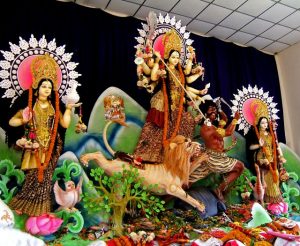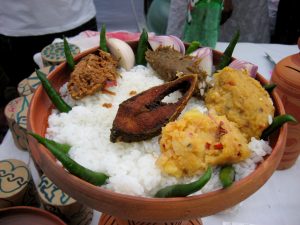Bangladeshi day by day life is packed with traditions and festivals that mirror the interesting society, culture and tradition of Bangladeshis. A portion of the convention and traditions are as antiquated as ancient days, while others are generally recent. The indigenous traditions and festivals that has been saved and supported through the ages are essentially base on rural practices. These incorporate nobanno (নবান্ন – the festival of the new harvest) and Pohela Baishakh (পহেলা বৈশাখ – the Bengali new Year). Religion has likewise assumed a particular part in molding the mores and traditions of Bangladeshi life.
Bangladesh is a transcendentally Muslim nation, and Islam’s disciples in Bangladesh commend the happy celebration of the two Eids, Eid-ul-Fitr, and Eid-ul-Azha, the month of Ramadan, Shab-e-Qadr, Shab-e-Barat and so on. Hindus in Bangladesh observe Durga Puja, Kali Puja and Janmastami. The Buddhists observe Buddho Purnima and the Christians Christmas. These are only a couple of the religious festivals and galas that Bangladeshis celebrate in their regular life.
National events likewise stamp Bangladeshi life, and these incorporate Independence Day, Victory Day, and the notable International Language Martyr’s Day.
Social traditions like conception, naming function, marriage, and passing too have an unmistakable Bangladeshi flavor with every ethnic and religious gathering having their own novel approach to stamp these traditions.
Some other remarkable festivals are:
- Ekushey Boi Mela – in Dhaka on the month of February of the Gregorian calendar.
- Shakrain – in Dhaka at the end of the Poush of the Bengali calendar.
- Jatiya Pitha Utsab – National Cake Festival.
- International Trade Fair
Festivals and Celebrations in images:








Source: Wikipedia, Virtual Bangladesh.

Leave a Reply